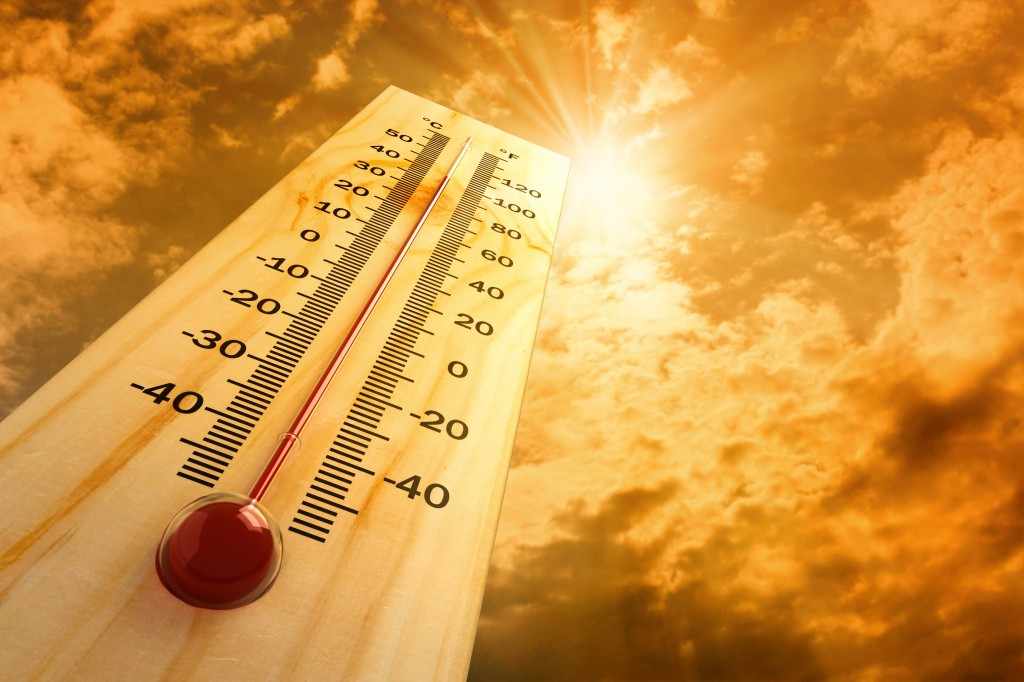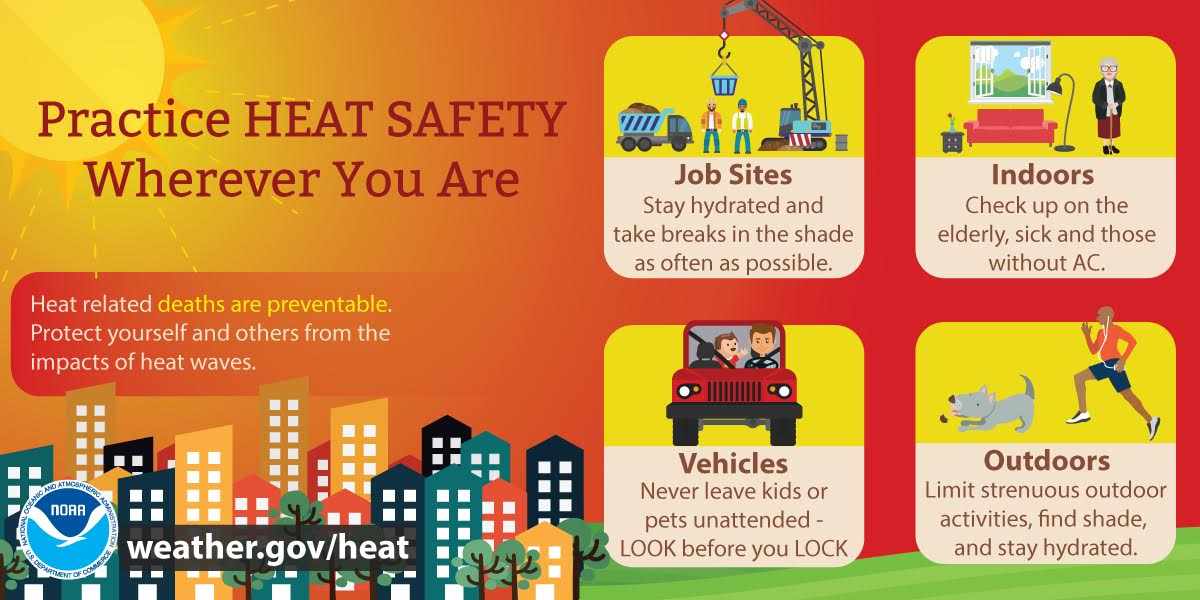-
Featured News
Heat Wave Forecast to Cook Midwest, Eastern U.S.

With temperatures soaring, Mayo Clinic experts are reminding people to take precautions in the heat.
According to the National Weather Service - Hot and very humid conditions will push the heat index to well over 100 degrees across a large portion of the central and southern states this week. Excessive Heat Warnings and Heat Advisories are in effect for much of the Plains, Miss. Valley, Midwest and southern states through the weekend.

Family medicine physician Dr. Jennifer Nordstrom, Mayo Clinic Health System in La Crosse,Wisconsin, says heat illness can range in severity from mild heat cramps to heat exhaustion to a potentially life-threatening heatstroke. She says certain individuals are at higher risk in the heat.
What puts you at higher risk?
- Diabetes, asthma or heart disease
- Being elderly or very young
- Being overweight or in poor physical condition
- Recently been ill with a fever
- Having had heat illness before
- Hard chargers who ignore the warning signs
Preventive measures
- Avoid strenuous activities when the heat index is above above 105 degrees Fahrenheit or the dew point is above 70.
- Drink 8 to 16 ounces of water an hour before beginning a workout.
- Maintain fluid intake before thirst begins.
- Avoid exercising in the hottest part of the day.
- Wear loose clothing to allow for circulation.
Heatstroke symptoms:
- High body temperature. A body temperature of 104 degrees Fahrenheit or higher is the main sign of heatstroke.
- Altered mental state or behavior. Confusion, agitation, slurred speech, irritability, delirium, seizures and coma can all result from heatstroke.
- Alteration in sweating. In heatstroke brought on by hot weather, your skin will feel hot and dry to the touch. However, in heatstroke brought on by strenuous exercise, your skin may feel moist.
- Nausea and vomiting. You may feel sick to your stomach or vomit.
- Flushed skin. Your skin may turn red as your body temperature increases.
- Rapid breathing. Your breathing may become rapid and shallow.
- Racing heart rate. Your pulse may significantly increase because heat stress places a tremendous burden on your heart to help cool your body.
- Headache. Your head may throb.
If you think a person may be experiencing heatstroke, seek immediate medical help. Call 911 or your local emergency services number.
Take immediate action to cool the overheated person while waiting for emergency treatment.
- Getting the person into shade or indoors.
- Removing excess clothing.
- Cooling the person with whatever means available — a cool tub of water or a cool shower, garden hose, sponge with cool water, fan while misting with cool water, or ice packs or cold, wet towels on the person's head, neck, armpits and groin.








